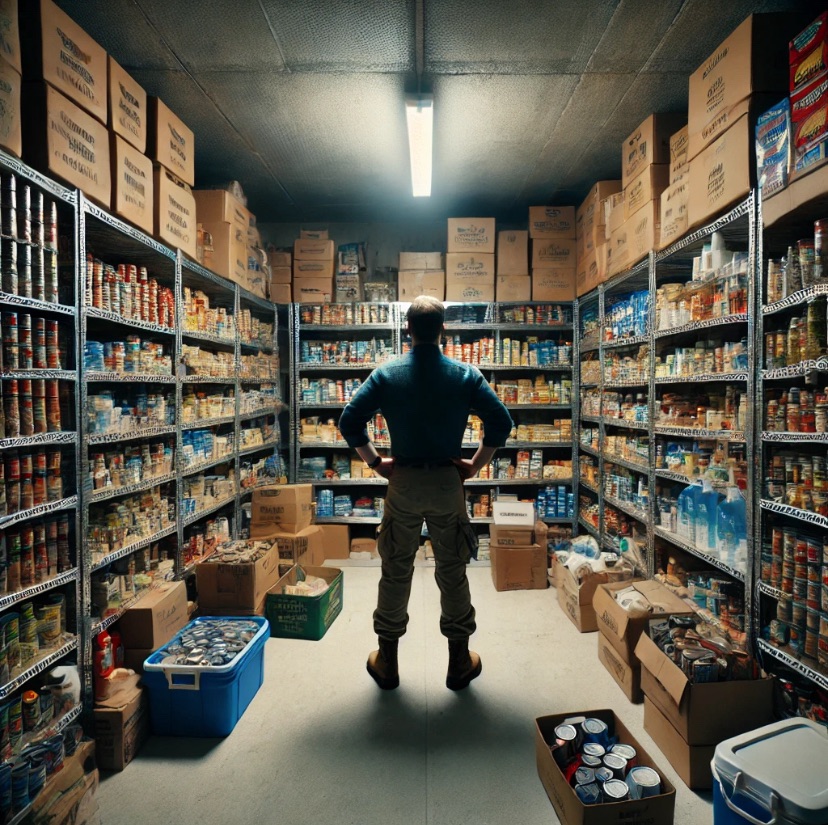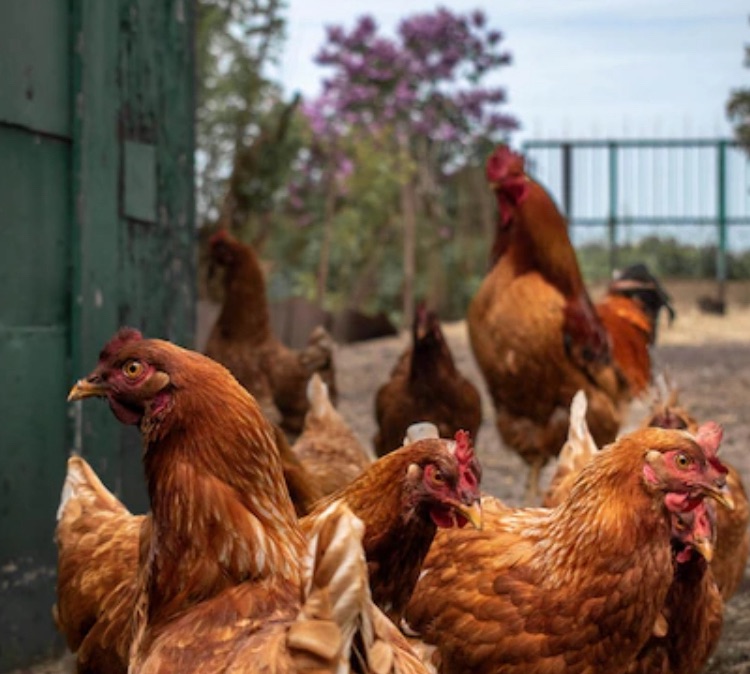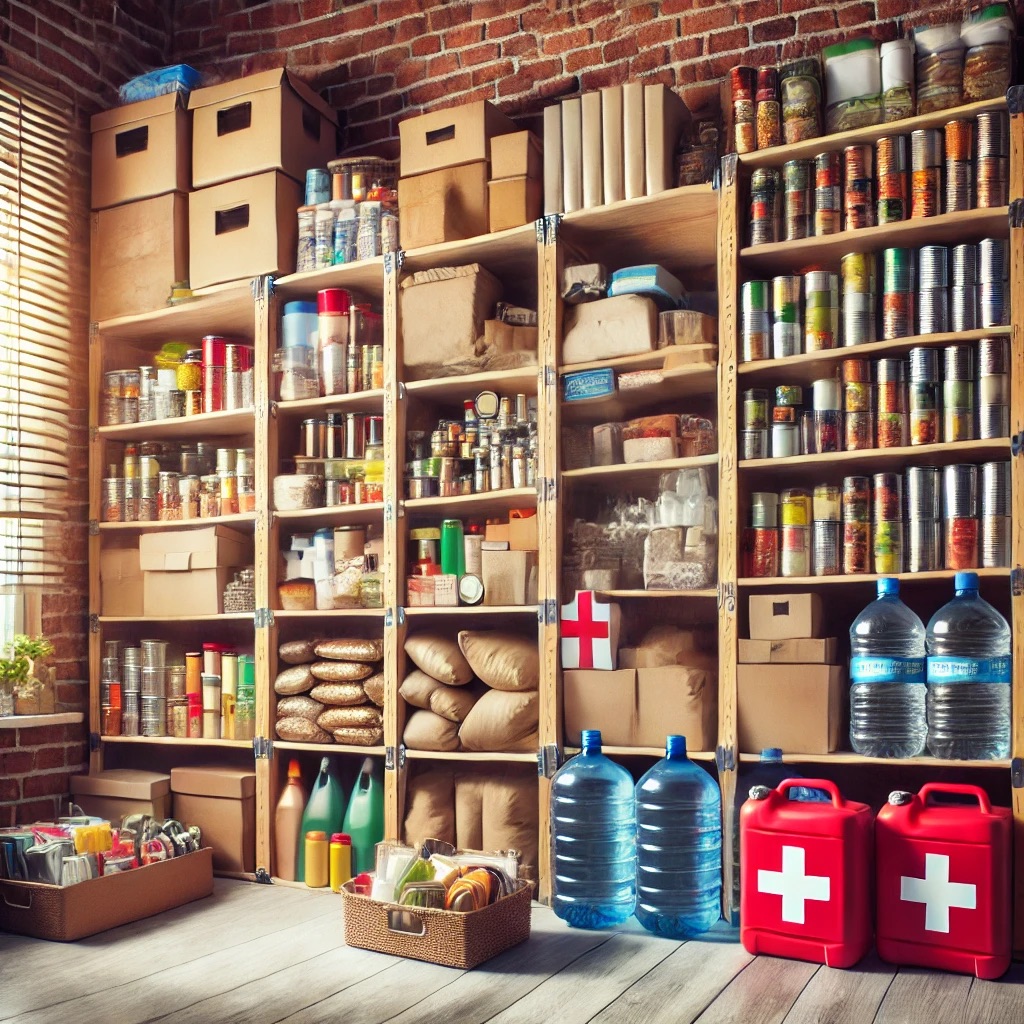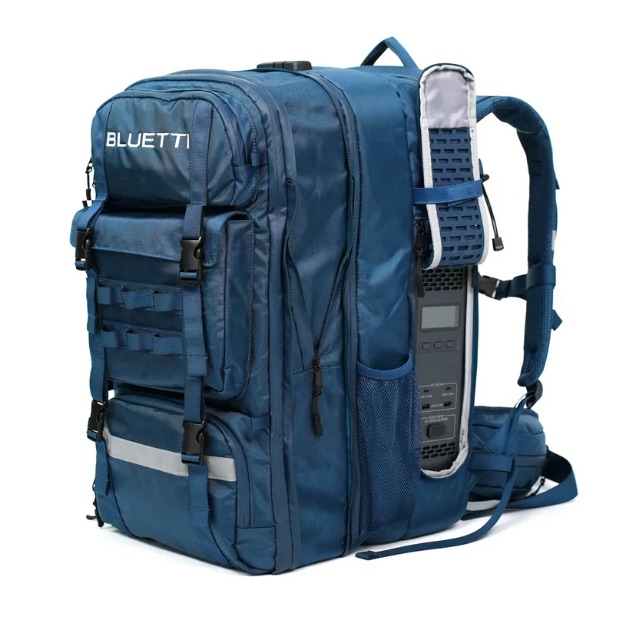In an unpredictable world, preparing for emergencies is a wise strategy to ensure the safety and well-being of yourself and your family. Whether you’re bracing for natural disasters, economic instability, or societal disruptions, having a well-stocked pantry is key. The food you store should be long-lasting, nutrient-dense, and versatile. In this post, we’ll explore the 10 essential foods every prepper should store to survive and thrive in any emergency situation.
Rice: The Versatile Staple
Rice is one of the most fundamental foods for any prepper’s pantry due to its long shelf life and versatility. White rice, in particular, can last up to 30 years if stored properly in a cool, dry environment. This grain provides carbohydrates, which are essential for energy, and pairs well with virtually any other stored food. Brown rice, although healthier, has a shorter shelf life because of its higher oil content.
Why store rice?
- Long shelf life (especially white rice)
- Inexpensive and easy to store in bulk
- Provides essential energy and pairs with other foods
Storage tips: Store rice in mylar bags with oxygen absorbers to extend its shelf life, and keep it in a cool, dry place away from pests.
Beans: A Protein Powerhouse
Beans, both dried and canned, are an excellent source of protein and fiber, making them an essential component of a prepper’s food supply. Dried beans, like rice, can last up to 30 years when stored properly. Beans are filling, nutritious, and can be easily prepared in a variety of dishes, providing essential amino acids that help maintain muscle and overall health during an emergency.
Why store beans?
- High in protein and fiber
- Long shelf life (especially dried beans)
- Versatile in meal preparation
Storage tips: Store dried beans in airtight containers with oxygen absorbers to maximize shelf life. Canned beans are also a good option, but they require rotation due to their shorter shelf life (about 3-5 years).
Canned Meats: Protein and Fat for Survival
Canned meats, such as chicken, beef, tuna, and salmon, are another critical source of protein and fat. During long-term emergencies, access to fresh meat may be scarce, so having canned options ensures a sustainable protein source. These meats can be used in soups, stews, or eaten straight from the can, providing essential nutrients like omega-3 fatty acids and iron.
Why store canned meats?
- Convenient source of protein and healthy fats
- Can be eaten without cooking
- High nutrient content
Storage tips: Regularly check expiration dates and rotate your stock. Keep them in a cool, dry place to extend shelf life.
Pasta: A Cheap and Filling Carb
Pasta is another inexpensive, filling, and easy-to-store food that complements many other pantry staples like canned meats, beans, and sauces. Like rice, pasta is a valuable source of carbohydrates, providing energy during difficult times. Dried pasta can last several years, making it a solid choice for long-term food storage.
Why store pasta?
- Long shelf life (2-5 years, sometimes longer)
- Pairs well with other stored foods
- Easy to prepare
Storage tips: Store pasta in airtight containers or mylar bags with oxygen absorbers to prevent moisture from reducing its shelf life.
Oats: A Nutritious Breakfast Option
Oats are a prepper’s best friend when it comes to breakfast options. They are nutritious, providing a good source of fiber, protein, and essential vitamins and minerals like iron and magnesium. Oats are also versatile; they can be used in a variety of dishes, from porridge to baked goods, and can be stored for years in proper conditions.
Why store oats?
- Long shelf life
- Highly nutritious and filling
- Can be used in multiple recipes
Storage tips: Store oats in a cool, dry environment, preferably in airtight containers or mylar bags with oxygen absorbers.
Honey: The Natural Sweetener
Honey is one of the few foods that never spoils, making it a valuable addition to any prepper’s pantry. It serves as a natural sweetener and offers medicinal benefits, including antibacterial properties. In addition to being a source of quick energy, honey can be used to treat minor cuts and burns, making it a multipurpose item in your emergency stockpile.
Why store honey?
- Infinite shelf life
- Natural sweetener and energy source
- Medicinal properties
Storage tips: Store honey in sealed containers at room temperature. If it crystallizes, simply heat it gently to return it to its liquid state.
Peanut Butter (or Nut Butters): A High-Calorie Necessity
Peanut butter is rich in calories, fats, and proteins, making it an essential high-energy food. It’s shelf-stable and can be used in various recipes or eaten on its own. For those with nut allergies, sunflower seed butter or other nut butters can be substituted.
Why store peanut butter?
- Calorie-dense and nutritious
- Long shelf life
- No cooking required
Storage tips: Keep unopened peanut butter in a cool, dry place, and rotate it as necessary. While it has a long shelf life, oils may separate over time, so give it a good stir before use.
Canned Vegetables: Essential Vitamins and Fiber
Canned vegetables provide necessary vitamins, minerals, and fiber, which are often lacking in emergency food supplies. While fresh vegetables may not be available, canned options like green beans, carrots, and tomatoes can help round out meals and ensure a balanced diet. They also add color and variety to your food, making meals more enjoyable during stressful situations.
Why store canned vegetables?
- Convenient and ready-to-eat
- Source of essential vitamins and minerals
- Can last 2-5 years or more
Storage tips: Keep canned vegetables in a cool, dark area, and rotate your stock regularly to ensure freshness.
Salt: The Essential Mineral
Salt is often overlooked, but it’s a crucial ingredient for both food preservation and human survival. In addition to enhancing flavor, salt can be used to preserve meats and vegetables, extend shelf life, and even aid in wound care. It never spoils and is lightweight and easy to store.
Why store salt?
- Essential for food preservation
- Infinite shelf life
- Multipurpose uses (food flavoring, preservation, medical)
Storage tips: Store salt in an airtight container to avoid clumping, especially in humid environments.
Powdered Milk: A Dairy Substitute
In an emergency, access to fresh dairy products may be limited. Powdered milk offers a convenient and long-lasting alternative to fresh milk. It’s high in calcium and vitamin D, and can be reconstituted with water to use in cooking, baking, or drinking. While it might not taste exactly like fresh milk, it’s invaluable in a survival situation.
Why store powdered milk?
- Long shelf life
- Good source of calcium and vitamin D
- Useful in recipes
Storage tips: Store powdered milk in a cool, dry place and reseal the packaging tightly after opening. Consider vacuum-sealing for longer storage.
Final Thoughts
Building a solid food storage plan is a critical part of emergency preparedness. The foods listed above are versatile, long-lasting, and packed with essential nutrients that will help you survive and thrive in any crisis. By focusing on a variety of staples—grains, proteins, fats, and essential vitamins—you can ensure that your food storage is both diverse and nutrient-rich. Always remember to store foods properly and rotate your supplies regularly to prevent spoilage.
Having these 10 essential foods on hand will give you peace of mind, knowing that you and your family are prepared for whatever the future holds.







